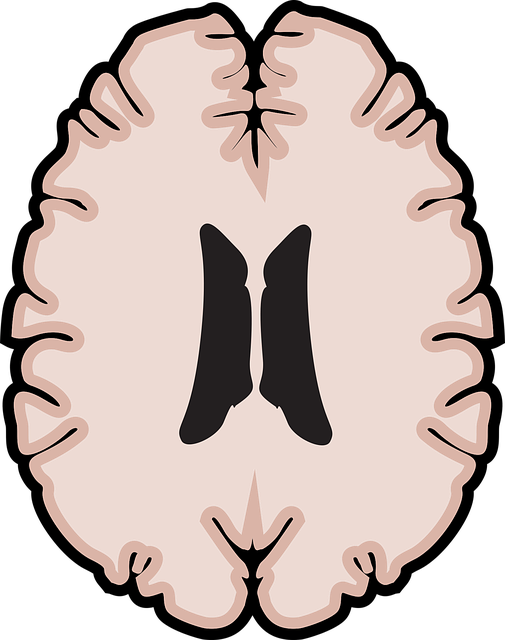Boulder Divorce Therapy prioritizes community engagement and understanding diverse needs for successful implementation. Utilizing local data, they identify at-risk populations like low-income families and remote individuals with limited therapy access. Public awareness campaigns educate and reduce stigma, while tailored outreach strategies engage various communities through platforms like social media and cultural events. The program collaborates with organizations to offer specialized counseling, stress reduction, and mental wellness coaching for divorcing individuals. Impact is measured through engagement tracking, feedback, and improvements in stress, coping, and emotional healing, demonstrating the positive effects of these community-focused initiatives.
In today’s digital era, community outreach programs play a pivotal role in providing mental health support, particularly for vulnerable groups. This article explores the implementation of Boulder Divorce Therapy programs, focusing on understanding diverse community needs and identifying target groups. We delve into designing effective outreach strategies using innovative techniques and tools to engage individuals facing divorce. Additionally, we discuss creating accessible services and measuring the impact of these initiatives, emphasizing the importance of inclusive practices in addressing community mental health.
- Understanding Community Needs: Identifying Target Groups for Boulder Divorce Therapy Programs
- Designing Effective Outreach Strategies: Techniques and Tools to Engage the Community
- Implementing Support Services: Creating Accessible and Inclusive Programs for Divorcing Individuals
- Measuring Impact and Success: Evaluating the Effectiveness of Community Outreach in Mental Health Support
Understanding Community Needs: Identifying Target Groups for Boulder Divorce Therapy Programs

Understanding Community Needs is a critical step in implementing effective Boulder Divorce Therapy programs. This involves recognizing that every community has its unique demographics and challenges related to mental health, especially during pivotal life events like divorce. By conducting thorough research and utilizing data from local Mental Health Policy Analysis and Advocacy groups, therapists can identify at-risk populations. These may include low-income families, ethnic minorities, or individuals in remote areas with limited access to traditional therapy services.
Targeting these specific groups is essential for ensuring that Boulder Divorce Therapy reaches those who need it most. Public Awareness Campaigns Development initiatives can play a significant role in educating the community about available resources and reducing the stigma associated with seeking mental health support during divorce. Through such efforts, therapists can foster a more supportive environment, ultimately enhancing the effectiveness of therapy programs.
Designing Effective Outreach Strategies: Techniques and Tools to Engage the Community

Designing effective outreach strategies is a cornerstone of successful community engagement for Boulder Divorce Therapy and other mental health services. It involves understanding the unique needs and characteristics of the communities served, then tailoring approaches that resonate deeply. This might include leveraging social media platforms to reach younger audiences with engaging content on self-care practices, or organizing cultural events that foster open dialogue around sensitive topics, demonstrating cultural sensitivity in mental healthcare practice.
Effective outreach also requires a robust toolset. Risk assessment for mental health professionals plays a crucial role in screening and addressing potential barriers to care, ensuring that services are accessible and tailored to individual needs. By combining these techniques with community partnerships and targeted communication channels, Boulder Divorce Therapy can build meaningful connections, fostering trust and increasing the likelihood of positive outcomes for those seeking support.
Implementing Support Services: Creating Accessible and Inclusive Programs for Divorcing Individuals

Implementing support services tailored to divorcing individuals is a crucial aspect of community outreach programs. These services aim to create accessible and inclusive environments where people going through divorce can find solace, guidance, and resources. One effective strategy involves collaborating with local mental health professionals to offer counseling and therapy sessions specifically designed for this demographic. By integrating Boulder Divorce Therapy principles, these programs can help individuals navigate the emotional complexities associated with separation and divorce while fostering resilience and personal growth.
Risk Management Planning for Mental Health Professionals plays a significant role in ensuring the safety and well-being of both clients and practitioners. Implementing Stress Reduction Methods within these outreach initiatives enables participants to manage the inherent stress and anxiety that often accompany divorce. Additionally, integrating Mental Wellness Coaching Programs Development can empower divorcing individuals with tools and techniques to enhance their overall mental wellness, promoting healthier coping mechanisms and improved life satisfaction post-divorce.
Measuring Impact and Success: Evaluating the Effectiveness of Community Outreach in Mental Health Support

Measuring the impact of community outreach programs is crucial to understanding their effectiveness in providing mental health support. Organizations like Boulder Divorce Therapy often employ various evaluation methods to assess success. These include tracking participant engagement, collecting feedback through surveys or interviews, and monitoring improvements in key areas such as stress levels, coping skills development, and emotional healing processes. By quantifying these aspects, the program can demonstrate its contribution to the community’s mental well-being.
In addition to direct measurement, examining broader trends in mental health policy analysis and advocacy within the community can provide valuable insights. An increase in public awareness about mental health issues, reduced stigma, and improved access to resources are potential indicators of successful outreach. These indirect measures showcase how community outreach programs can foster a more supportive environment for individuals seeking emotional healing.
Boulder Divorce Therapy can significantly impact communities by addressing the unique needs of divorcing individuals. By understanding community dynamics, designing tailored outreach strategies, and implementing accessible support services, these programs can reach those in need. Measuring success through evaluation ensures the effectiveness of community outreach, fostering a healthier and more resilient local landscape. This multi-faceted approach not only provides much-needed mental health support but also strengthens the overall well-being of Boulder’s diverse communities.














